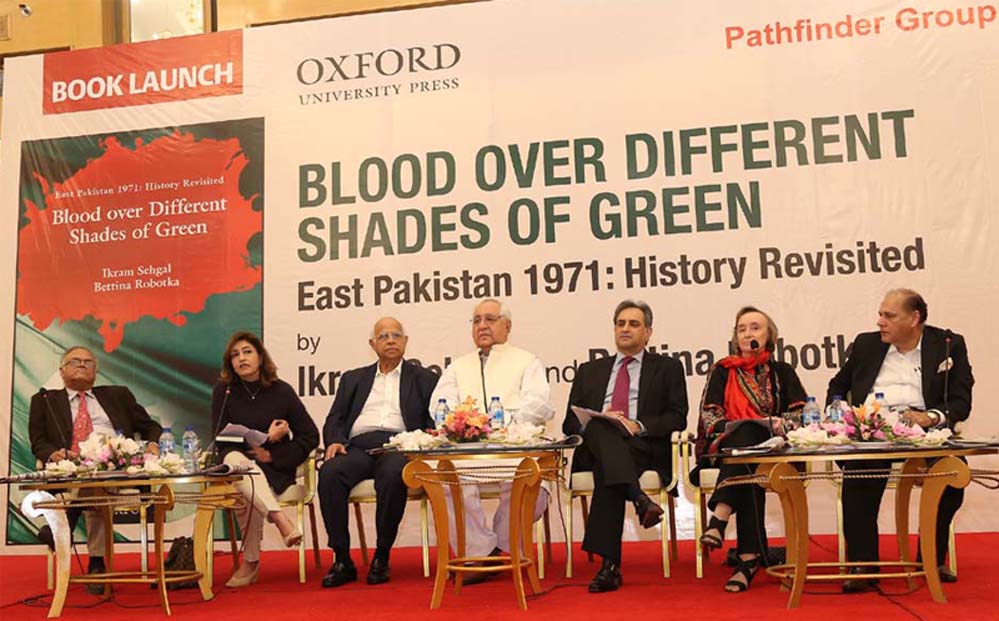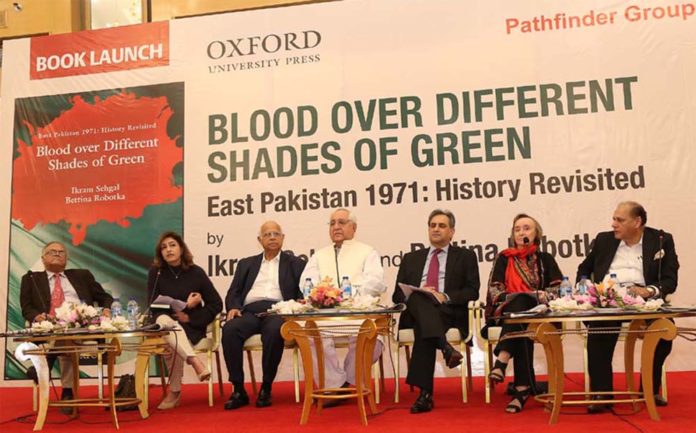Speech by Arshad Saeed Husain, Managing Director, Oxford University Press
Speech by Arshad Saeed Husain, Managing Director, Oxford University Press, at the launch of Blood over Different Shades of Green–East Pakistan 1971: History Revisited by Ikram Sehgal and Bettina Robotka on Saturday, 28 December 2019 at 3 p.m. at the Marriott Hotel, Karachi. Let me welcome all of you to the launch and discussion of this important book. Pakistan is a demographically young country. The Age Profile in the Census shows that barely 11% of our present population were alive at the time of the traumatic events of 1971. That is another way of saying that, for the overwhelming majority of Pakistanis, the violent vivisection in which half the country was torn away is merely a chapter or so in the history books – something that occurred in the distant past.Worse, it is often hard to gain an objective view of the East Pakistan Civil War of 1971. Those events seem to be shrouded in clouds of confusion and misinformation, making it difficult to gain a valid perspective.
Chronicles of all that happened then seem to have been examined through the refracting prisms of many preconceived interpretations that it has become difficult to view things clearly. And it is still more difficult to derive any useful Lessons from what occurred.Let me assert that it is vitally important to derive those Lessons, to analyse such events as the Trauma of 1971 with a clear vision and without bias and to do this, it is necessary to go back to the events themselves and see them as they actually unfolded before the eyes of someone who actually lived through them and can describe them with a high degree of veracity. Only after an objective real life description of this kind can the task of developing an understanding meaningfully begin.
The book we are launching today seeks to do just that. Blood over Different Shades of Green – East Pakistan 1971: History Revisited, expresses the purpose of the work accurately. “Shades of green” suggests the different perceptions of identity and destiny at the time, and “History Revisited” is exactly what this work comprises.
The author, Ikram Sehgal, was formerly, a young Pakistan Army Officer, hailing from what was then East Pakistan. He lived through the events he describes and was himself, a prisoner of war, who managed to escape Indian imprisonment. His co-author, Dr Bettina Robotka, is a historian and senior researcher at the department of South Asian History and Society, Humboldt University, Berlin. Together, they have authored a book explaining the background and causes for development of the secessionist movement in the former East Pakistan. Let me now welcome the members of our distinguished Panel today, who will help us to understand this important book from three separate points of view: a military perspective, a political perspective, and an economics/ business perspective. In addition to Mr Ikram Sehgal and Dr Bettina Robotka, our panel comprises: Lt Gen. Ali Kuli Khan Khattak (Retired), the highly regarded former Chief of General Staff of the Pakistan Army; Senator Mushahid Hussain Syed, the well-known former Minister, politician, and journalist; and Mr Sirajuddin Aziz, the CEO, Group Financial Institutions, of Habib Bank AG Zurich. The deliberations of the Panel will be introduced and moderated by the notable commentator Dr Huma Baqai, Associate Dean and Associate Professor of Social Sciences and Liberal Arts, IBA, Karachi. A warm welcome to the authors and the distinguished members of the Panel. Thank you. 






